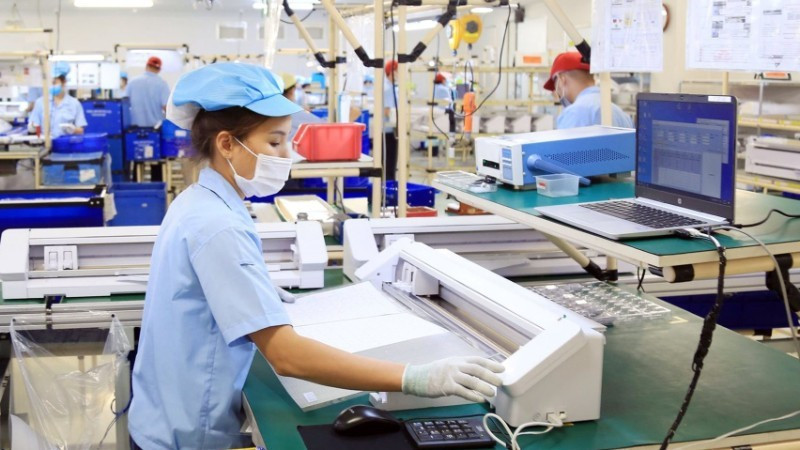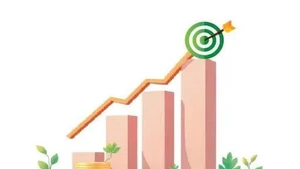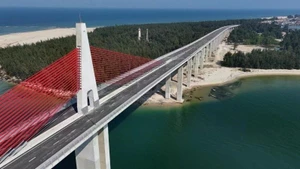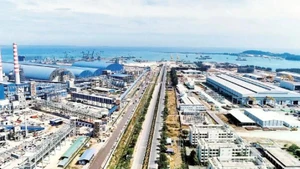The recent Viet Nam Business Forum (VBF) 2025 recorded numerous recommendations and solutions for advancing digital transformation and green transition, with the aim of building a holistic green economy that harmonises economic growth, environmental protection and social welfare.
Viet Nam’s global standing
Providing an update on Viet Nam’s socio-economic performance in the first ten months of 2025, Minister of Finance Nguyen Van Thang highlighted that Viet Nam’s economy continues to be a bright spot in the region, with GDP growth reaching 8% in the third quarter and over 7.8% over the first nine months—among the highest globally. Macroeconomic stability has been maintained, with major economic balances ensured; the consumer price index increased by 3.27% and core inflation by 3.19%, both lower than the targets assigned by the National Assembly and below the IMF’s global average inflation forecast.
Since the beginning of the year, FDI inflows have exceeded 31.5 billion USD in registered capital, with 21.3 billion USD in realised capital, demonstrating investor confidence in Viet Nam’s investment environment.
Viet Nam is facing many opportunities, but sustainable growth is not an easy path. The transition to an environmentally friendly economy requires mobilising significant domestic and foreign resources, which must go hand in hand with capital market development and strong investment in technology, infrastructure, and research and development.
Thomas Jacobs, Acting Regional Director for East Asia and the Pacific, IFC
Regarding the upgrade of Viet Nam’s stock market to emerging-market status, Mariam Sherman, World Bank Country Director for Viet Nam, Cambodia and Laos, said this is not merely a technical change but opens the door to long-term capital flows into sustainable projects in Viet Nam. With reforms highly valued by international investors, Viet Nam’s market is building greater trust—making this the right moment to build a greener and more competitive economy.
Implementing institutional reforms, simplifying permitting procedures and enhancing policy predictability in line with Politburo Resolution No. 68-NQ/TW (May 4, 2025) on private-sector development will enable businesses to grow, innovate and participate more deeply in global value chains.
To become a high-income economy, Viet Nam needs to invest heavily in transport, energy and climate resilience. The World Bank stands ready to help mobilise additional financing, foster market development, and support Viet Nam in achieving more competitive, sustainable and greener growth.
Thomas Jacobs, Acting Regional Director for East Asia and the Pacific, International Finance Corporation (IFC) said that: “Viet Nam is facing many opportunities, but sustainable growth is not an easy path. The transition to an environmentally friendly economy requires mobilising significant domestic and foreign resources, which must go hand in hand with capital market development and strong investment in technology, infrastructure, and research and development.”
Green transition in the digital age
Viet Nam’s development strategy in the new era identifies digital transformation and green transformation as key drivers of fast and sustainable growth.
Deputy Secretary-General of the Viet Nam Chamber of Commerce and Industry (VCCI) Dau Anh Tuan noted that Viet Nam is regarded as a potential destination within the emerging global value chains, attracting foreign enterprises seeking to invest, manufacture, expand their markets and pursue sustainable development values. The inaugural Provincial Green Index (PGI) survey, conducted and released in May 2025, shows that localities have made strong efforts to improve the quality of the business and investment environment, encourage green business practices and strengthen environmental management.
Viet Nam is regarded as a potential destination within the emerging global value chains, attracting foreign enterprises seeking to invest, manufacture, expand their markets and pursue sustainable development values. The inaugural Provincial Green Index (PGI) survey, conducted and released in May 2025, shows that localities have made strong efforts to improve the quality of the business and investment environment, encourage green business practices and strengthen environmental management.
Dau Anh Tuan, Deputy Secretary-General of VCCI
However, institutional challenges and limitations in policy implementation continue to create significant barriers to Viet Nam’s green transition. VCCI recommends that the Government focus on developing an effective green finance ecosystem by expanding the carbon credit market, promoting green bonds, and introducing credit guarantee mechanisms to help small and medium-sized enterprises access green finance. Another important factor is the need to enhance the role, responsibility and autonomy of local authorities in driving the green transition, as this process is, in essence, implemented from the grassroots level.
Regarding key policies for Viet Nam’s digital and green transition in the coming period, the Government will continue to advance the application of e-government and digital government in its administration, ensuring the consistent implementation of inter-sectoral administrative procedures through a unified digital platform connecting central and local levels.
This process requires strong participation by the business community, which serves both as a driving force and the principal actor in delivering green, sustainable growth objectives.
In response to new requirements, businesses have proactively adopted ESG (environmental, social and governance) standards, reduced emissions, invested in clean technologies, and strengthened the application of science, technology and innovation. Foreign direct investment (FDI) enterprises, in particular, play a leading role, working alongside domestic firms to advance green transition objectives through technology transfer and deeper integration into global supply chains.
















